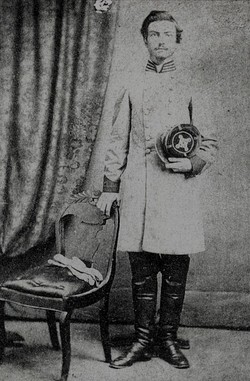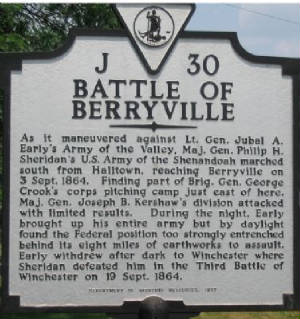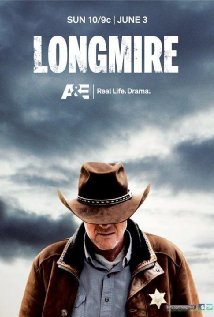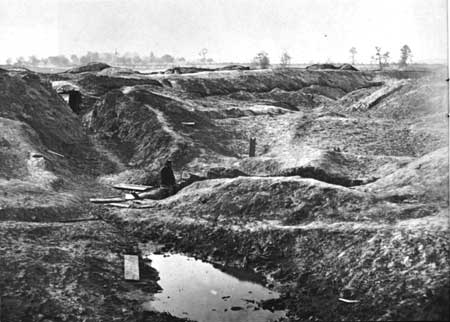 It occurred to me recently that I had missed a significant date in The Boys of Diamond Hill that occurred May 29, 1864, this past May 29 marked the 150th anniversary of the combat death of Captain Robert Chatham — commander of Company G, 19th South Carolina Volunteers. Capt. Chatham was significant to the story of the Boyd family because he had been Thomas Boyd’s commanding officer. Chatham had written two letters to Thomas’s father, Robert Boyd. The first providing notification about his death and the second advising Mr. Boyd on how to claim Thomas’s final pay from the Confederate government.
It occurred to me recently that I had missed a significant date in The Boys of Diamond Hill that occurred May 29, 1864, this past May 29 marked the 150th anniversary of the combat death of Captain Robert Chatham — commander of Company G, 19th South Carolina Volunteers. Capt. Chatham was significant to the story of the Boyd family because he had been Thomas Boyd’s commanding officer. Chatham had written two letters to Thomas’s father, Robert Boyd. The first providing notification about his death and the second advising Mr. Boyd on how to claim Thomas’s final pay from the Confederate government.

Capt. Hugh R. Garden
Robert Chatham had graduated from South Carolina College (now University of South Carolina) in 1860. He was a classmate of fellow Abbeville officer Col. Alexander Cheeves Haskell future commander of the 7th South Carolina Cavalry and later S.C. Supreme Court justice; and Capt. Hugh Richardson Garden — future commander of Garden’s Artillery which distinguished itself at Gettysburg (covered in detail in the upcoming “South Carolina Remembers Gettysburg”) among other battles.
One year and one day after writing the last letter to Robert Boyd on May 28, 1863, Capt. Robert Chatham received a mortal wound at New Hope Church in Paulding County, Georgia. It was generally believed that this resulted from an accidental discharge within the Confederate lines. John Abney Chapman of Company D disagreed. Chapman had been shot through the foot and ankle by the very shot that ended up striking the fatal wound to Chatham’s abdomen. In Chapman’s book, “History of Edgefield County…” he related a conversation he had in 1867 with Col. Shaw of Newberry. They both agreed that the angle of the shot indicated that it had come from their front and would have almost certainly been from hostile forces.
At the time of Capt. Chatham’s wounding, Rev. John Gardiner Richards — Chaplain of the 19th and the 10th South Carolina Volunteers Regiments and father of future S.C. Governor John G. Richards, Jr. — rushed to his side. Richards stayed with Chatham in the hospital until his death the next day and related the details of his final hours in a letter to Chatham’s younger brother, James Cobb. Chatham’s father had passed away when Robert Chatham was a boy and his mother had remarried to Edmund Cobb. The Cobbs had both died during the first year of the war leaving Chatham as the sole guardian for James. Richards told James Cobb that Capt. Chatham had these words for him:
“Tell him I have no fears of death. I am sorry to leave him without a protector, but I leave him in the hands of our merciful, heavenly Father. Tell him to prepare for eternity; to live a sober, righteous, and godly life; to meet me in heaven; to remember my instructions, and our mother’s dying request.”
Richards related that Chatham had these instructions for his men “to put their trust in God, and never desert the glorious cause in which they are battling, until God, in His goodness and mercy, shall give us the victory. As they are noble soldiers in their country’s cause, so let them be true soldiers of the cross, and if it is permitted, I will watch over them as a guardian angel.”
At this point Chatham instructed the doctor to loosen his bandages so he may die more peacefully. Both Richards and Chapman related the impression given in his letters, that Robert Chatham was an officer who was loved by his men and admired by his fellow officers. His death was a great loss to the Confederate army and to the future of South Carolina.

Boys of Diamond Hill
The Military Writers Society of America Gold Medal for History 2012.
To read the entries thus far in the Sesquicentennial series for The Boys of Diamond Hill click here.
To learn more click on the “Diamond Hill” link at the top. To buy the book you may go to any major online retailer such as Amazon or Barnes and Noble, or you may buy it directly from McFarland Publishers. “The Boys of Diamond Hill” is also available for the Kindle.
 Daniel Boyd wrote his father from Rapidan Station, Virginia Sept. 21, 1864. The 7th South Carolina had left Winchester, Virginia on Sept. 15th, four days before the Battle of 3rd Winchester. He gives his opinion of their new brigade commander, Gen. James Connor of Charleston. Connor had been the District Attorney for the state of South Carolina who had prosecuted the captain of The Wanderer – long believed to be the last ship to disobey the law banning the importation of African slaves. Daniel said that Connor was the hardest of all the generals they had served under.
Daniel Boyd wrote his father from Rapidan Station, Virginia Sept. 21, 1864. The 7th South Carolina had left Winchester, Virginia on Sept. 15th, four days before the Battle of 3rd Winchester. He gives his opinion of their new brigade commander, Gen. James Connor of Charleston. Connor had been the District Attorney for the state of South Carolina who had prosecuted the captain of The Wanderer – long believed to be the last ship to disobey the law banning the importation of African slaves. Daniel said that Connor was the hardest of all the generals they had served under.
















